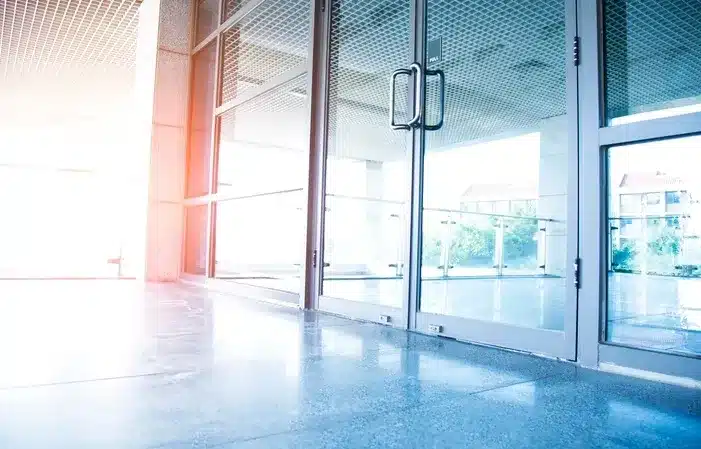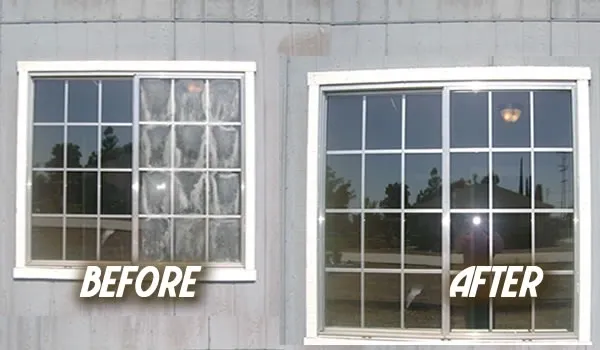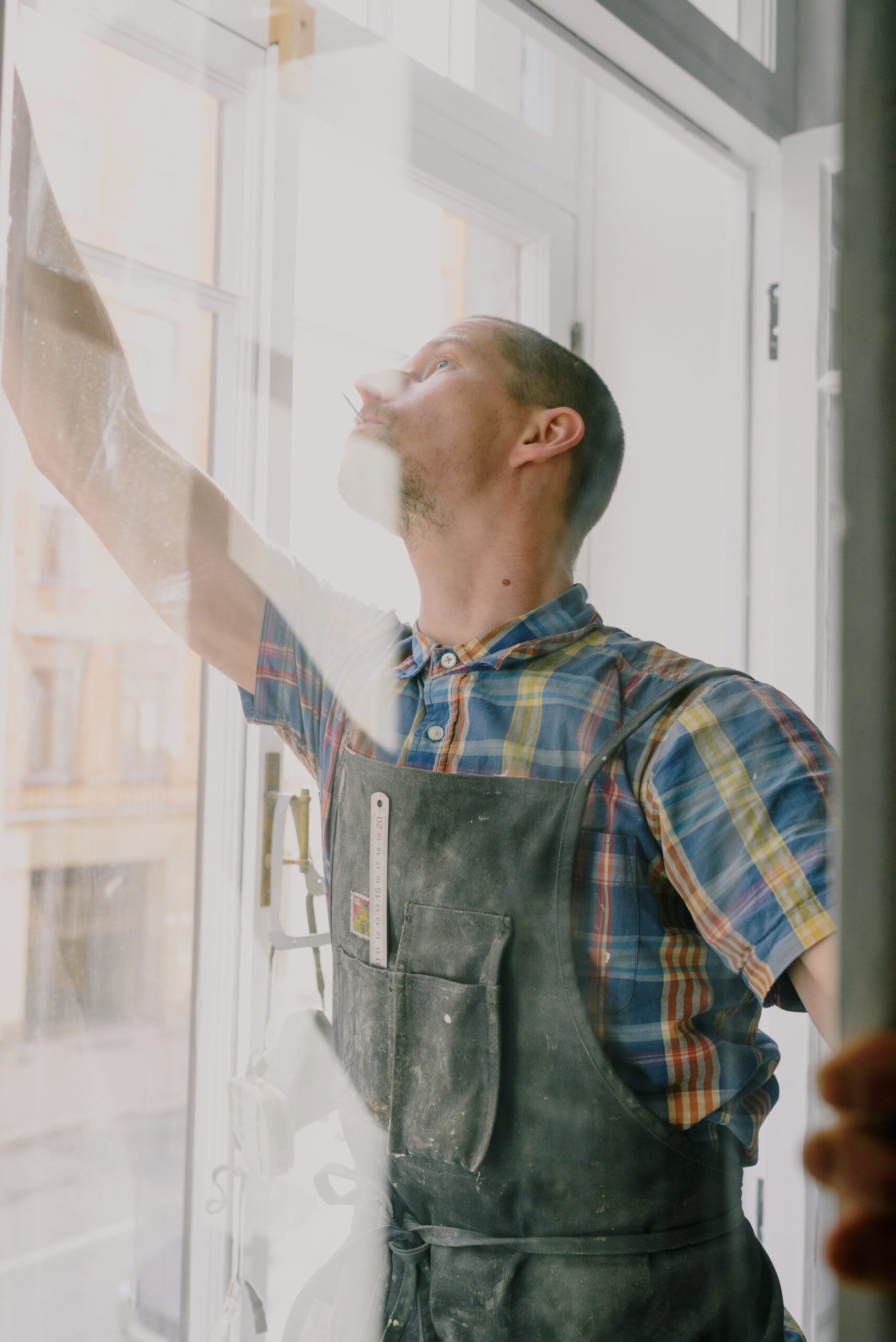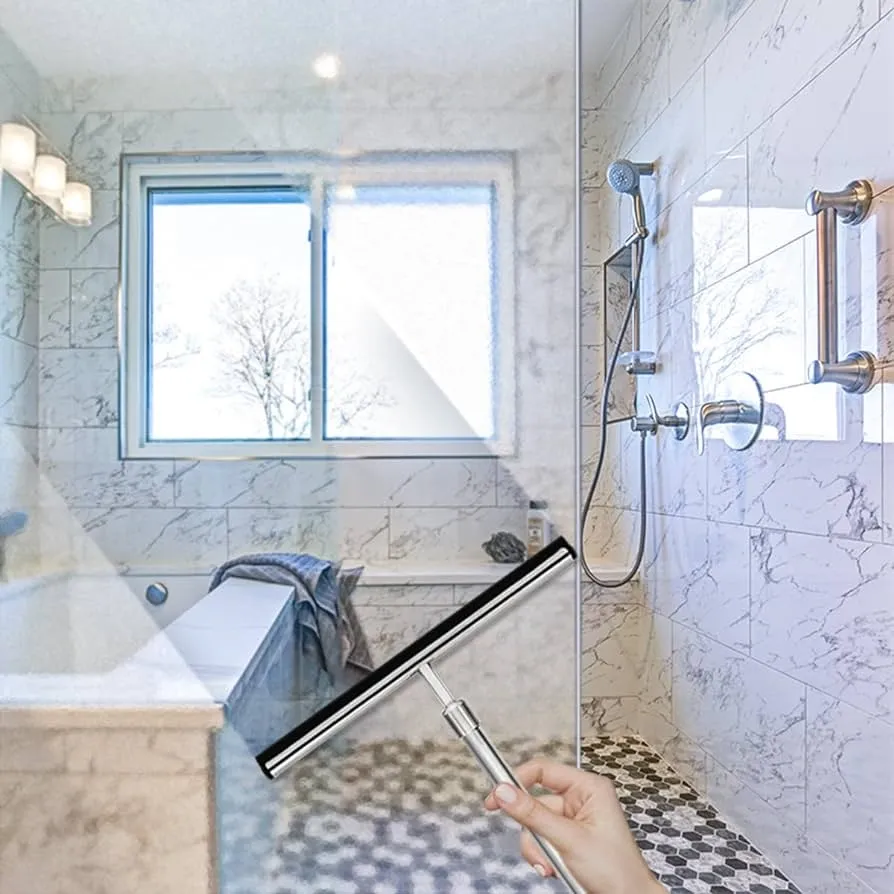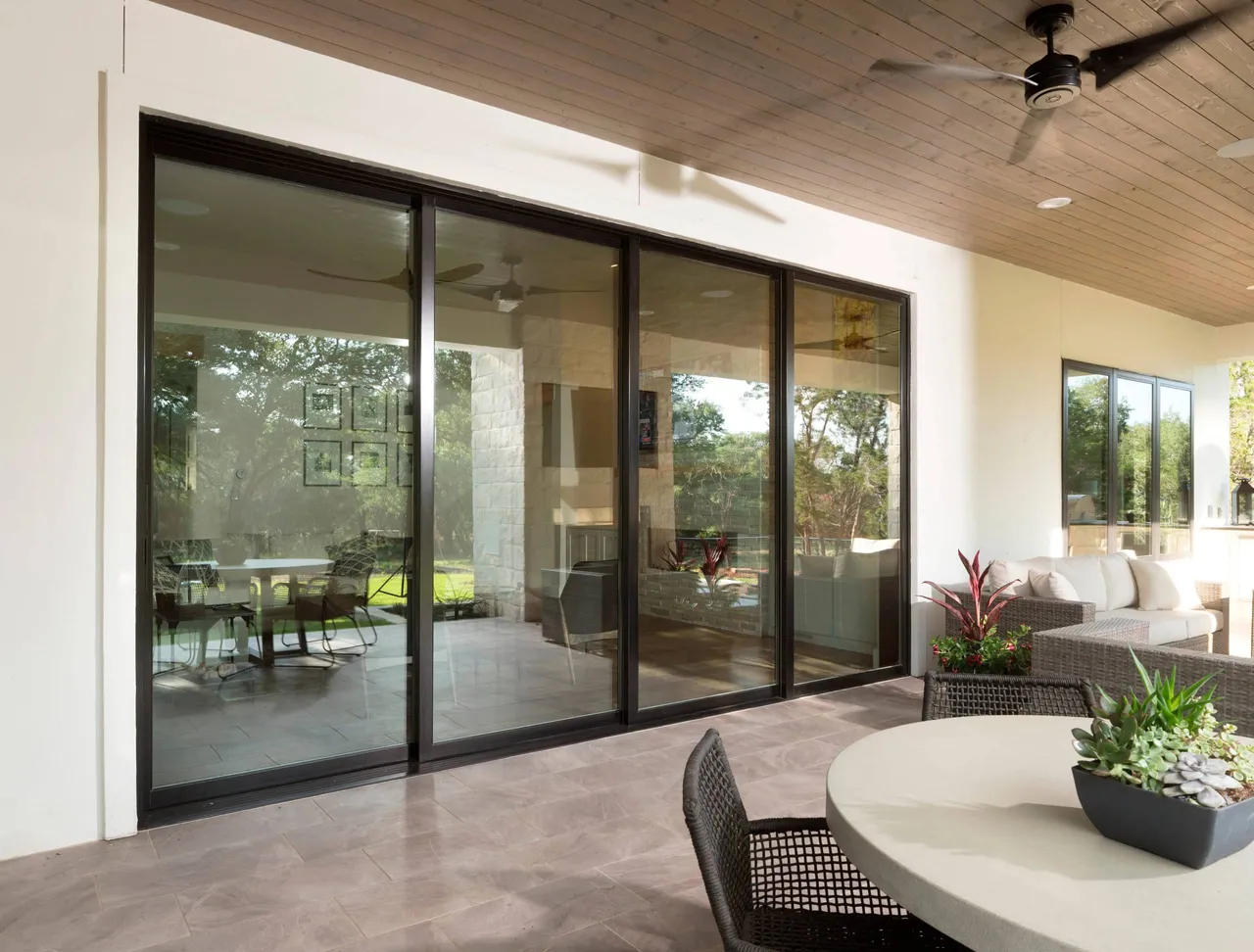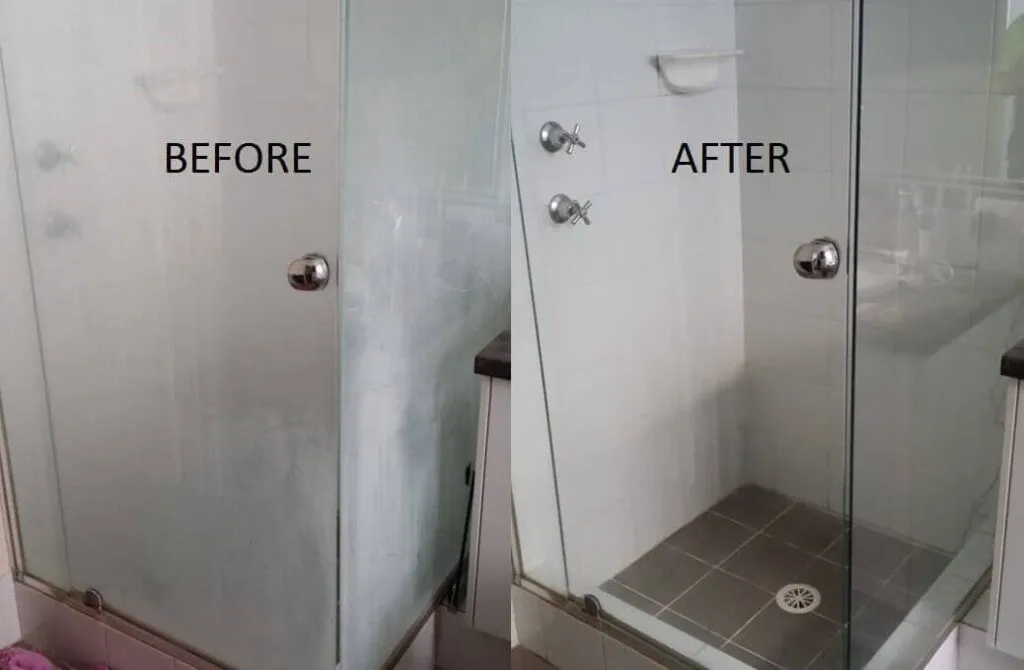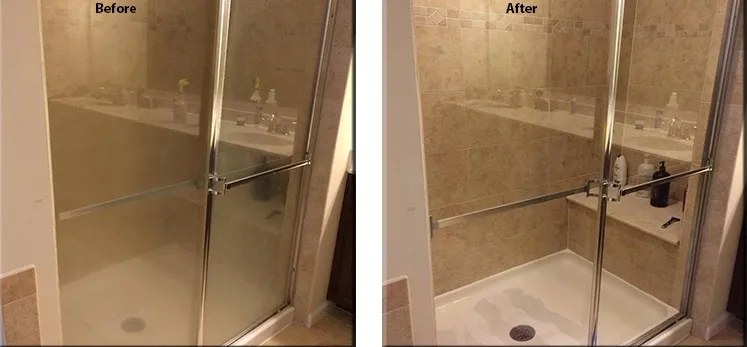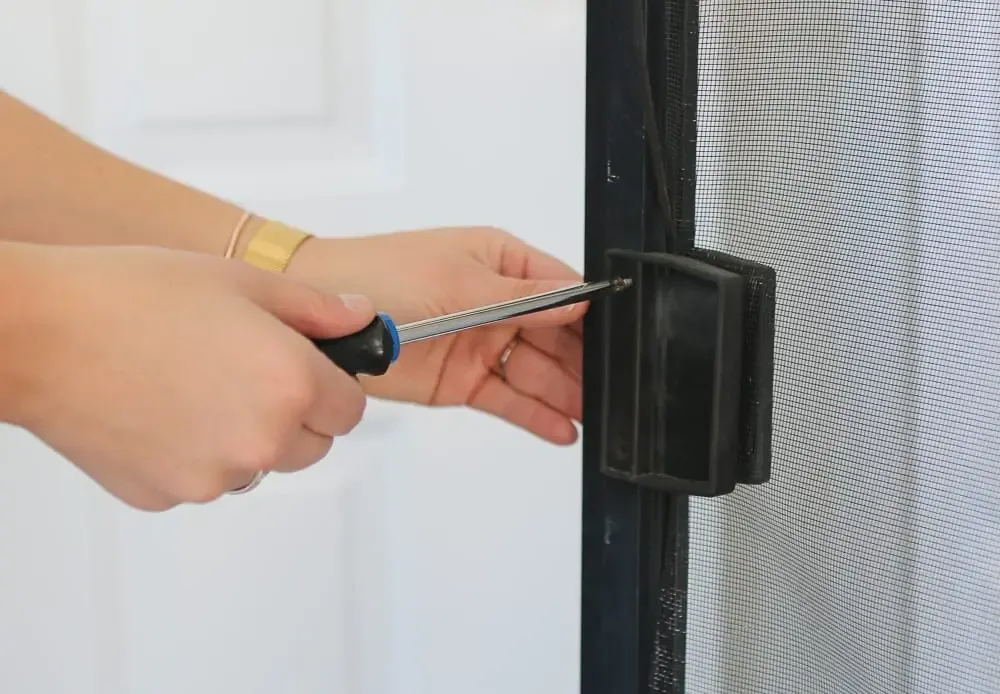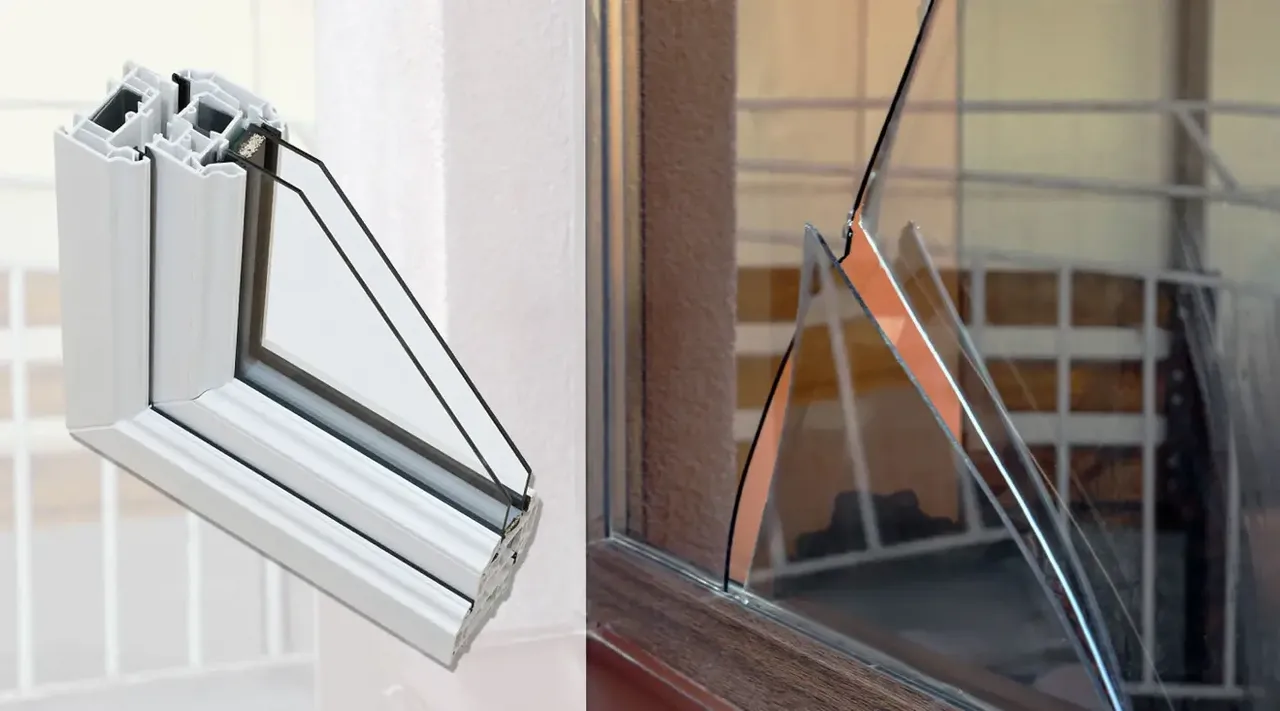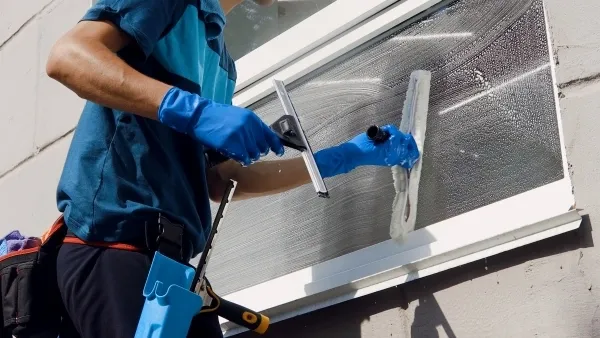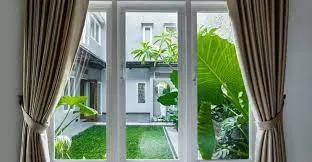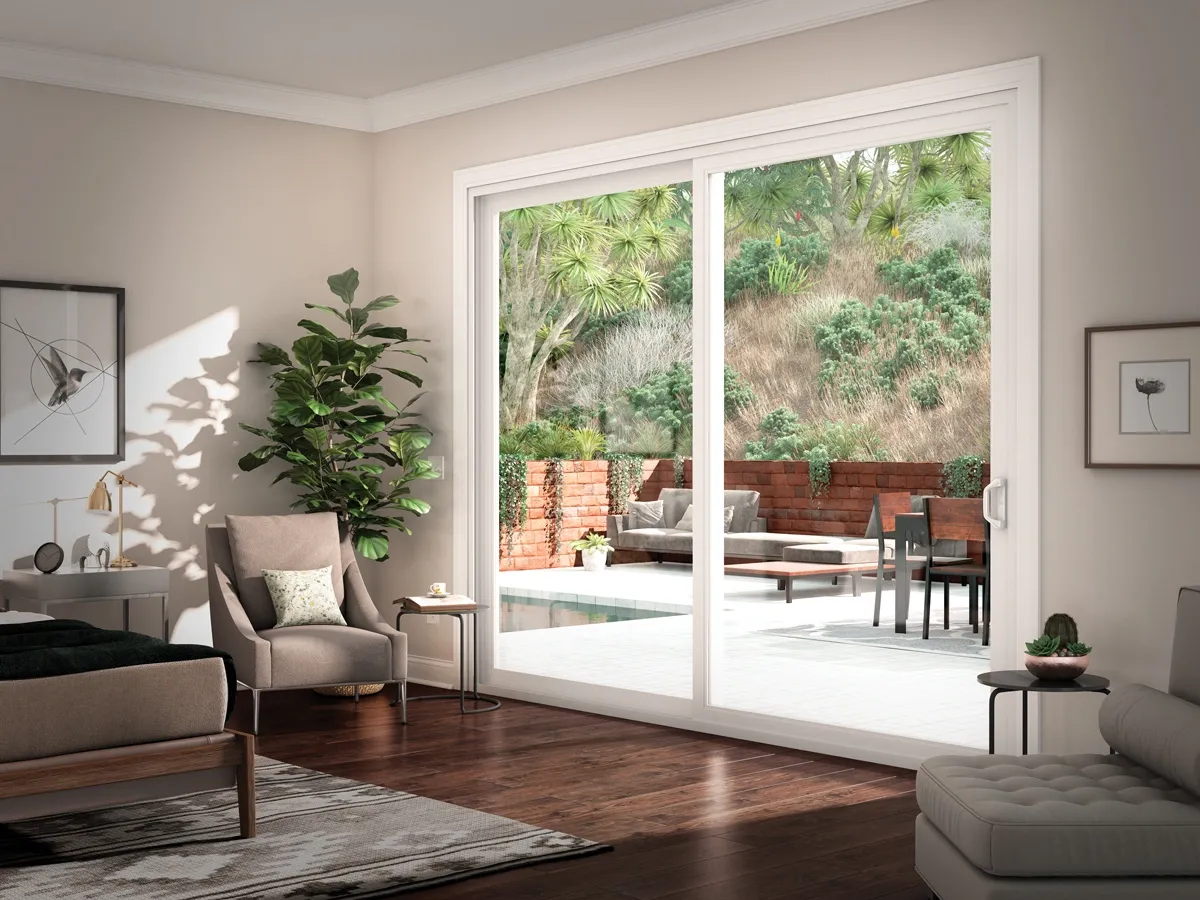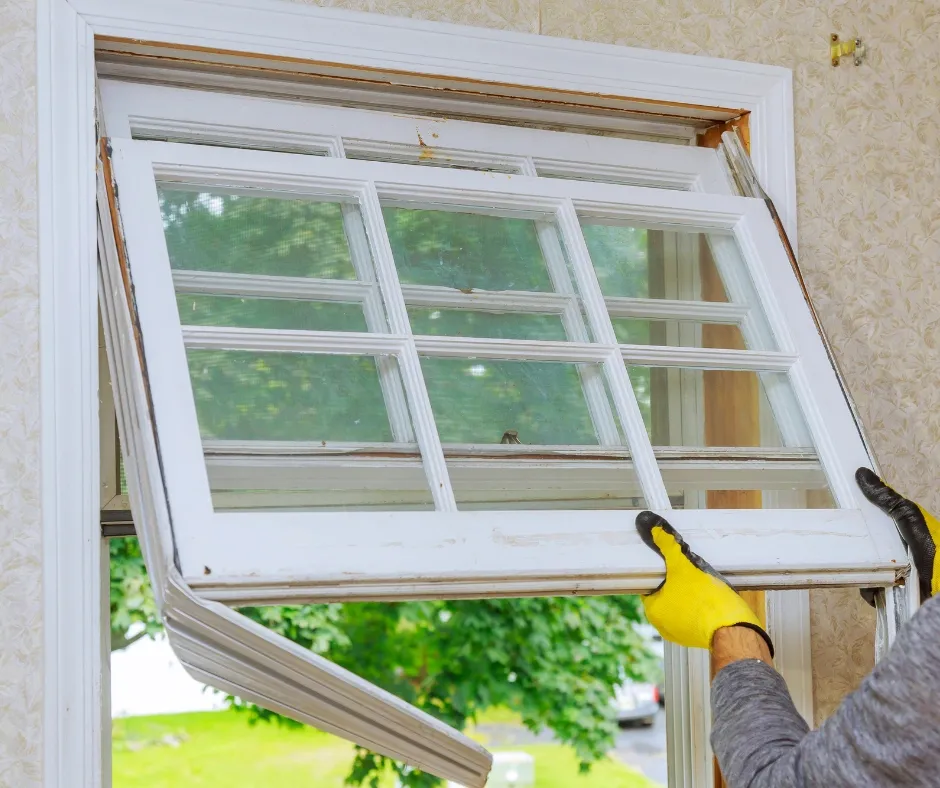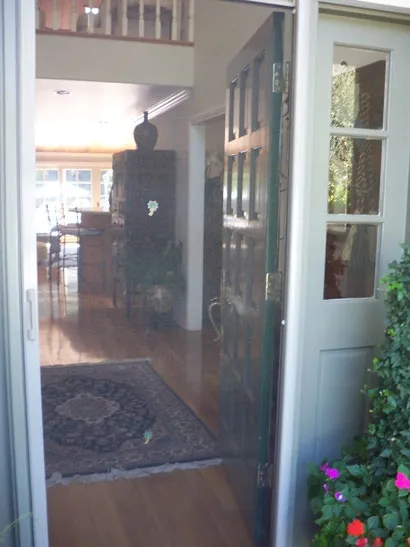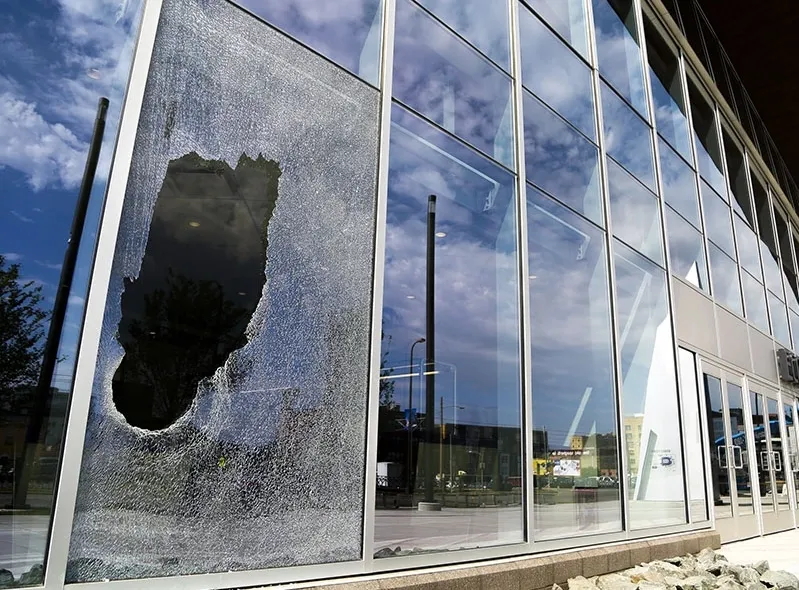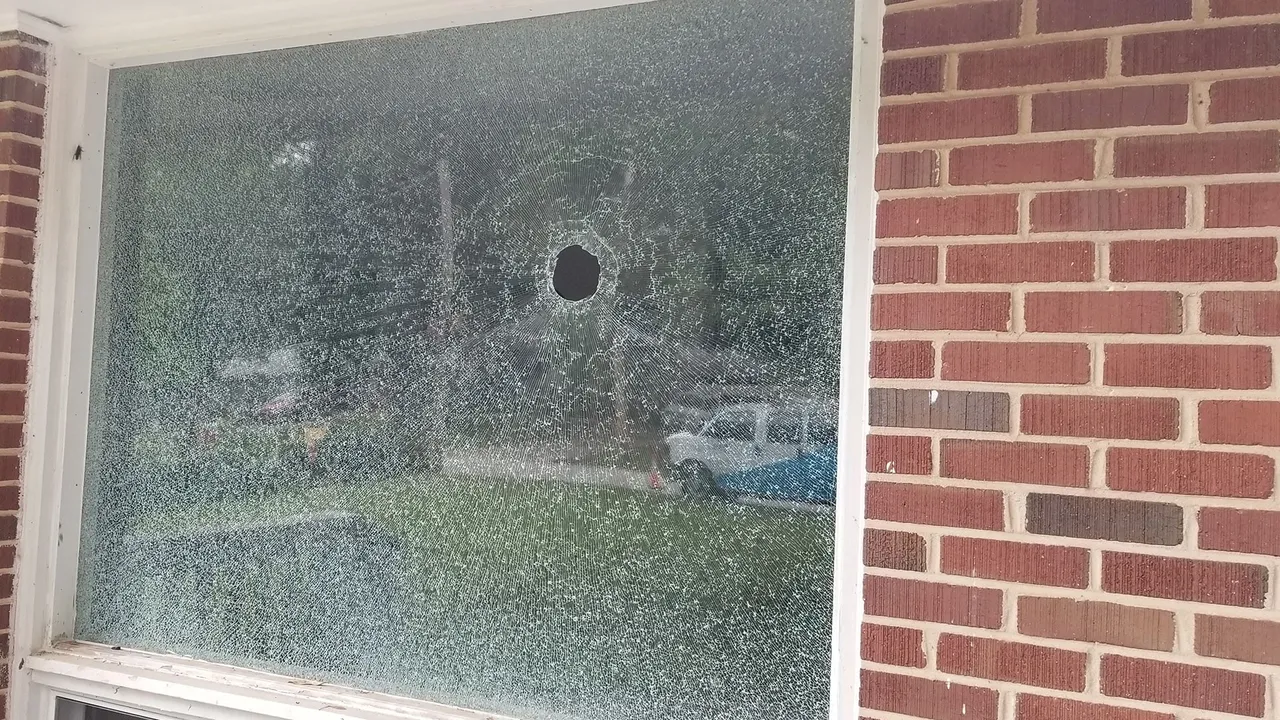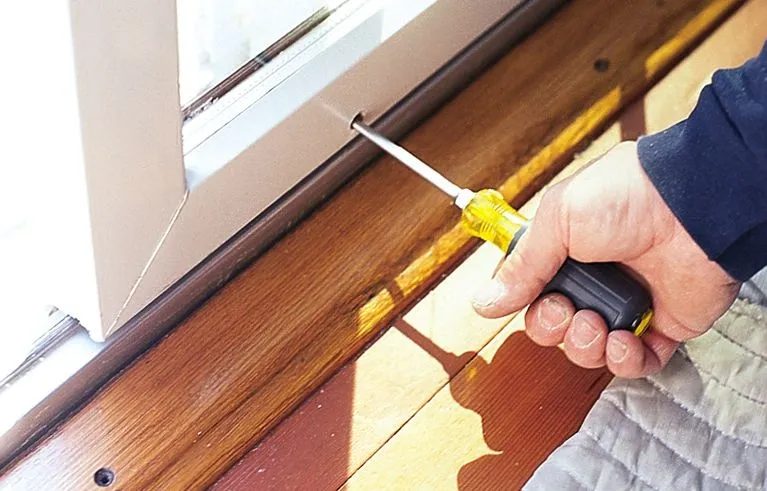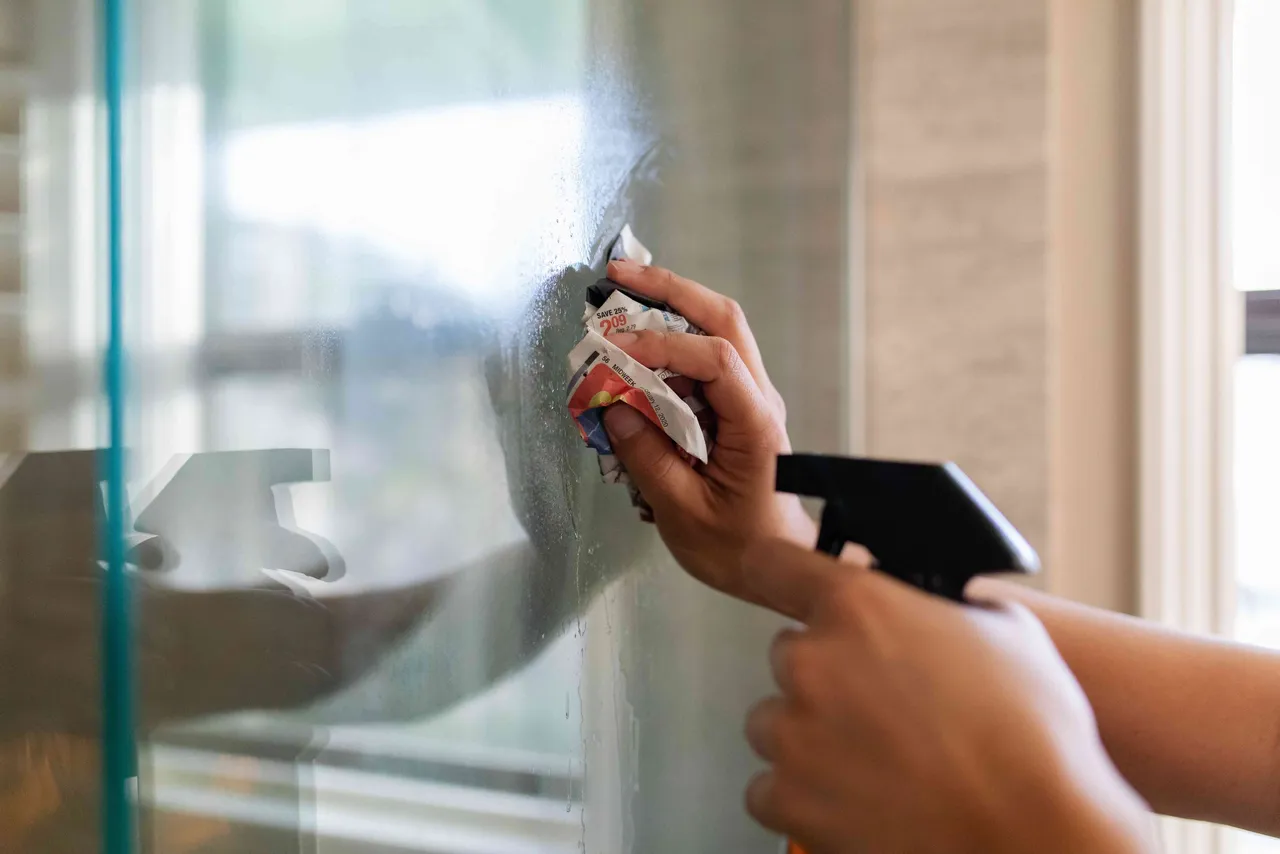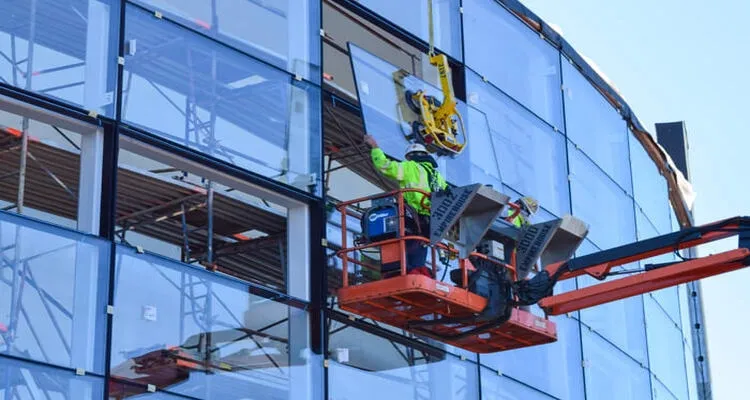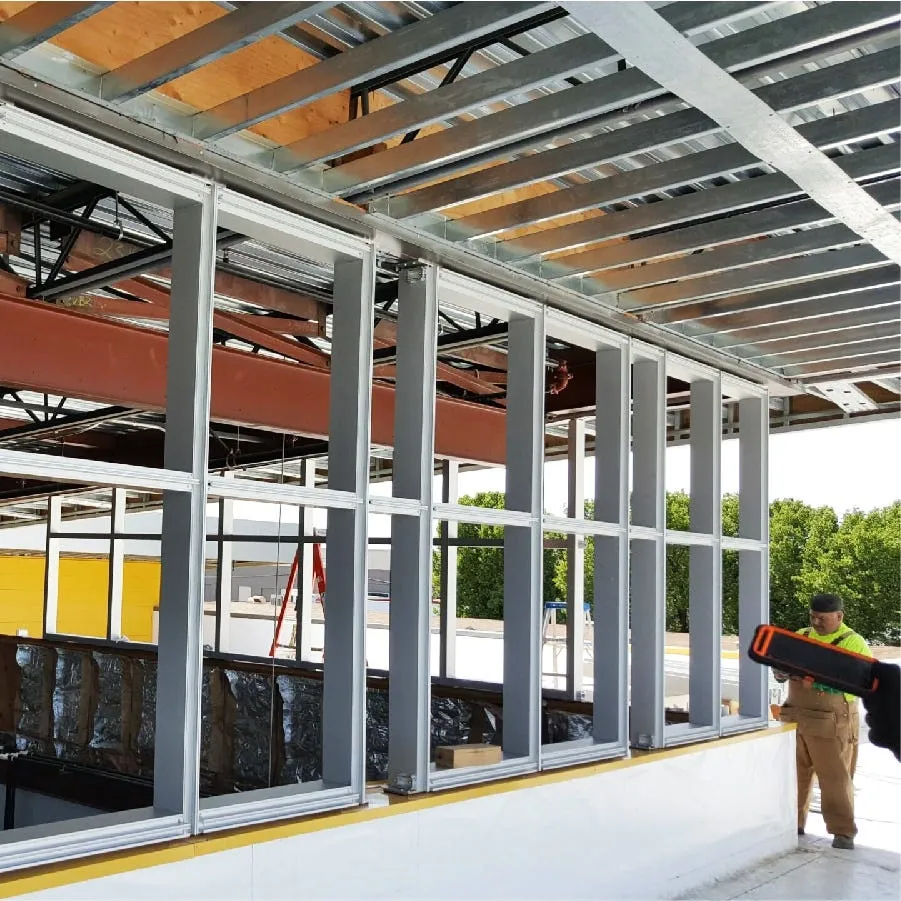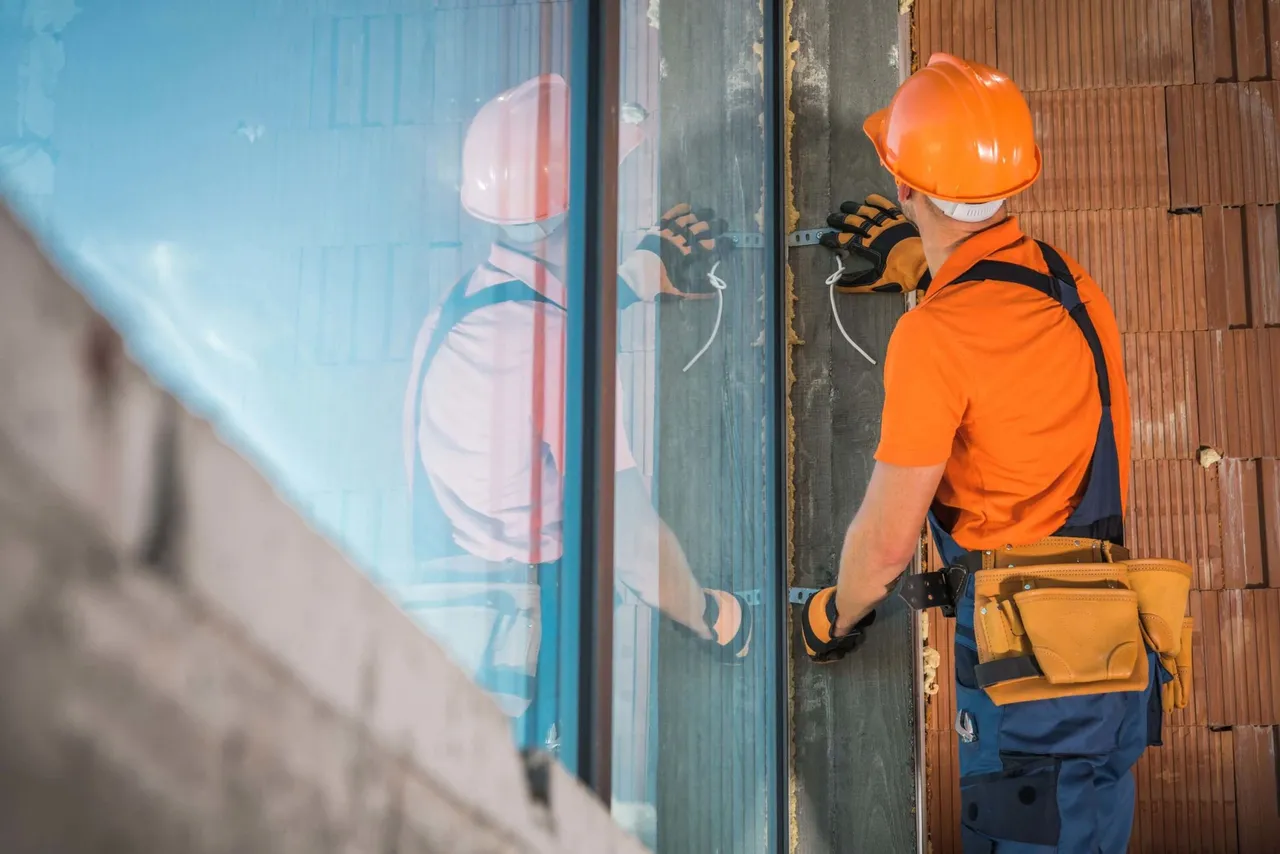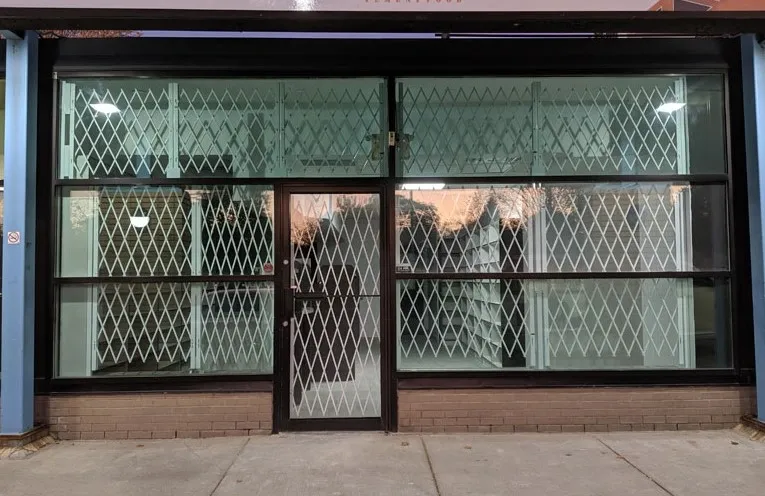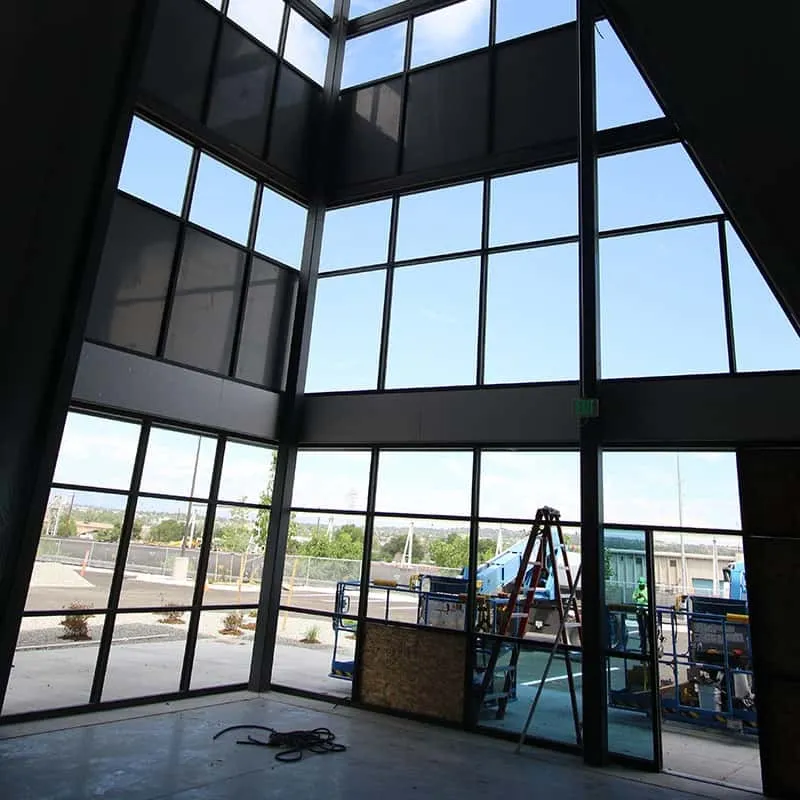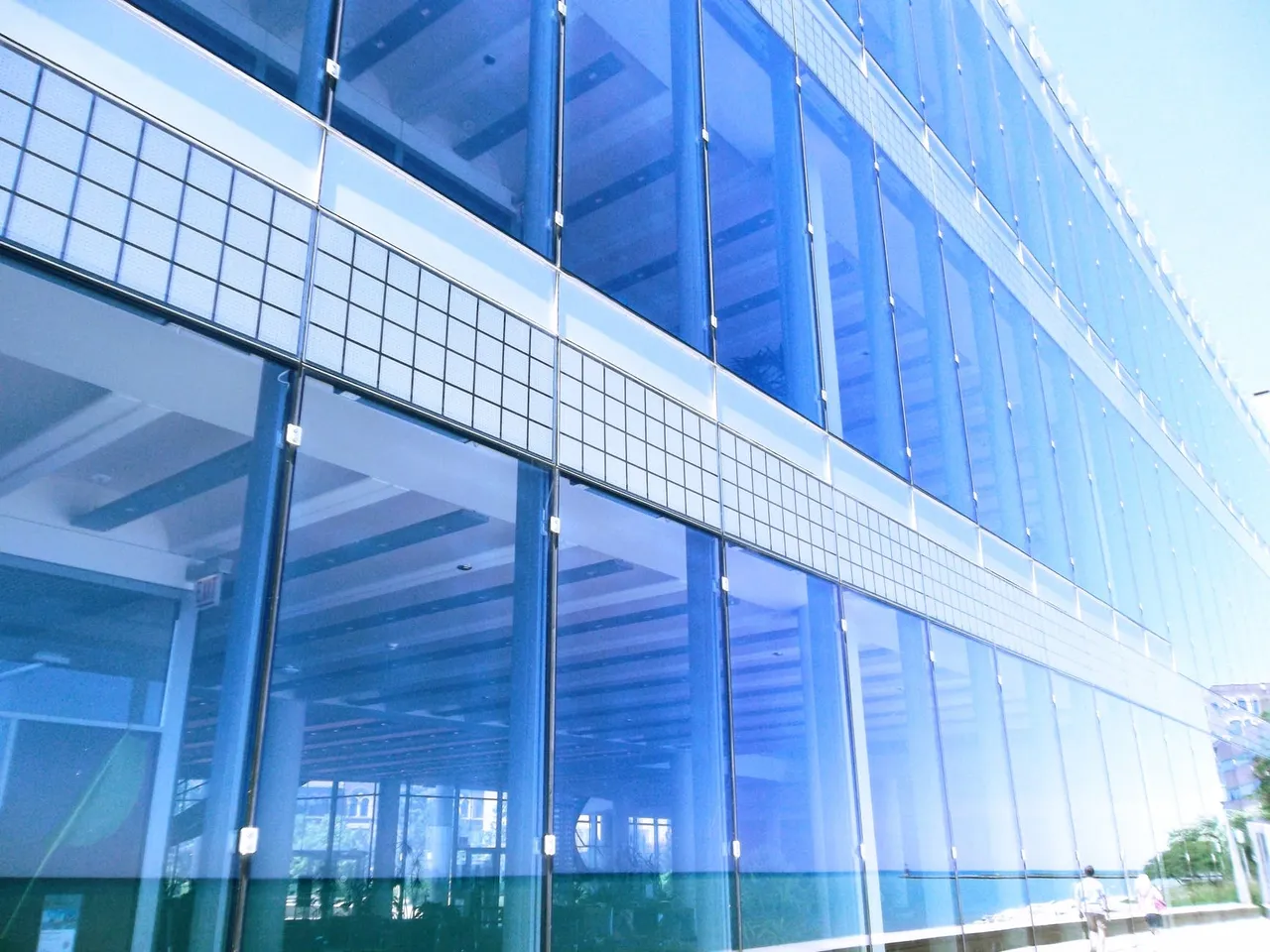Commercial Glass Door Types for Commercial Applications
The global demand for commercial glass is on the rise, with an estimated $2.8 billion spent annually on this versatile building material. Unless you’re directly involved in window manufacturing or installation, terms like commercial glass or commercial glass door might not be familiar. However, understanding these can significantly impact the design and functionality of commercial spaces.

Here’s a detailed look at various types of commercial glass applications and terms commonly used in public buildings.
Glazers for Commercial Glass Door Installation
Glazers are the skilled professionals responsible for installing commercial glass and commercial glass doors. Becoming a glazer requires several years of apprenticeship because the job involves complex tasks. These highly sought-after professionals work on installing large commercial windows, skylights, and doors in commercial spaces. Their responsibilities include reading and interpreting blueprints, removing old glass, cutting glass to precise measurements, installing molding for insulation, and sealing glass panes securely in place. The demand for glazers continues to grow as more commercial buildings incorporate extensive glasswork into their designs.
Filters for UV Protection in Commercial Glass Doors
The harmful effects of UV rays from the sun are well-known, prompting many glass manufacturers to develop filtered glass designed to block these rays. Filtered glass is essential in commercial applications, especially for structures with extensive glass coverage, such as high-rise buildings. Imagine a skyscraper towering 50 feet in the air made entirely of glass. Without filtered glass, occupants would be exposed to harmful UV rays throughout the day. This type of glass not only protects people but also prevents interior furnishings from fading and damage, making it a popular choice for commercial glass doors and windows.
Tinting for Sunlight Control in Commercial Glass Doors
Tinted glass isn’t just for car windows; it’s equally valuable in commercial settings. Commercial glass doors and windows allow natural light to flood a space, enhancing the ambiance and reducing the need for artificial lighting. However, depending on the orientation of your commercial building, direct sunlight can cause glare and excessive heat during certain parts of the day. Tinted glass helps to mitigate these issues by providing shade and reducing the amount of light that passes through, thus enhancing the comfort of indoor spaces. Tinted commercial glass doors offer an elegant solution to controlling sunlight exposure while maintaining the aesthetic appeal of your building.
Double-Paned Commercial Glass Doors for Insulation
In regions where temperatures are extreme—whether excessively hot or cold—the use of double-paned glass is a practical solution for commercial spaces. This type of glass construction involves two panes of glass with a layer of gas, usually argon or krypton, sealed between them. The gas acts as an insulator, reducing heat transfer and enhancing energy efficiency. Double-paned commercial glass doors are particularly beneficial in maintaining comfortable indoor temperatures, reducing heating and cooling costs, and minimizing the environmental impact of the building.
Safety and Security Glass for Commercial Applications
Safety and security are paramount in any commercial building, and the right type of glass can play a crucial role. Safety glass, such as tempered or laminated glass, is designed to break into small, less dangerous pieces or remain intact even when shattered. This reduces the risk of injury and adds an additional layer of security. For buildings that require higher levels of protection, such as banks or jewelry stores, security glass can be reinforced with polyvinyl butyral (PVB) layers or embedded with wire mesh. These types of commercial glass doors not only protect against break-ins but also withstand impacts from accidents or natural disasters.
Low-E Coatings for Energy Efficiency in Commercial Glass Doors
Low-emissivity (Low-E) coatings are another innovation in commercial glass applications, designed to improve energy efficiency. These coatings are applied to commercial glass doors and windows to minimize the amount of ultraviolet and infrared light that passes through the glass without compromising the amount of visible light. Low-E coatings help to keep the interior of a building cool in the summer and warm in the winter, reducing energy consumption and costs. For businesses focused on sustainability, Low-E coated commercial glass doors offer a significant return on investment by enhancing the building’s overall energy performance.
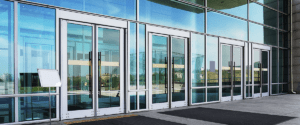
FAQs
1. What is the best type of glass for commercial doors?
The best type of glass depends on the specific needs of your commercial space. Double-paned glass or Low-E coated glass are excellent choices for energy efficiency. Tempered or laminated glass is recommended for safety, while tinted or filtered glass is ideal for UV protection and glare reduction.
2. How long does it take to install a commercial glass door?
The installation time for a commercial glass door varies based on the door’s size, complexity, and the condition of the existing structure. Generally, it can take anywhere from a few hours to a full day. Engaging professional glazers ensures the job is done efficiently and correctly.
3. Are commercial glass doors energy efficient?
Yes, especially when using double-paned or Low-E coated glass. These types of glass provide better insulation, helping to maintain indoor temperatures and reduce energy costs associated with heating and cooling.
4. How do I maintain commercial glass doors?
Regular cleaning with non-abrasive cleaners is recommended to keep the glass clear and free from smudges. It’s also important to inspect seals and frames periodically to ensure there are no gaps or damage that could compromise the door’s efficiency.
5. Can commercial glass doors be customized?
Absolutely. Commercial glass doors can be customized in terms of size, shape, glass type, and additional features like tinting or etching. Customization allows businesses to align their doors with their aesthetic and functional needs.
Conclusion
Commercial glass doors are not only functional but also enhance the aesthetic appeal of any commercial building. From providing natural light to contributing to energy efficiency, safety, and security, the right type of commercial glass door can significantly improve a space’s overall environment. Whether you are constructing a new commercial building or upgrading an existing one, understanding the various glass options available will help you make informed decisions that align with your business goals.
